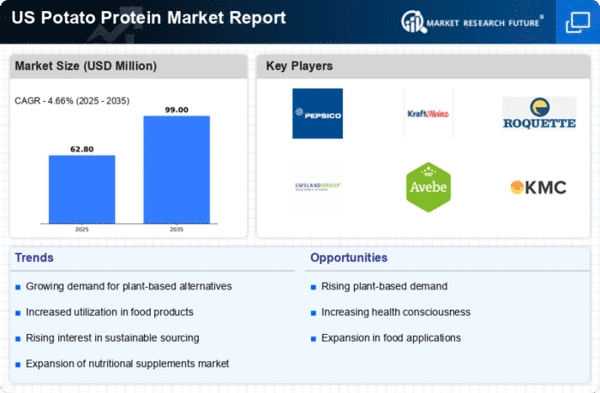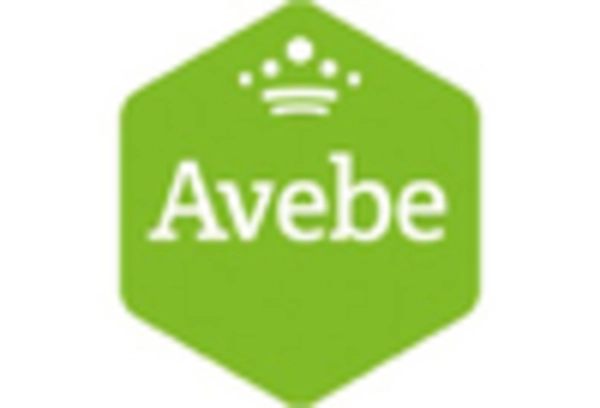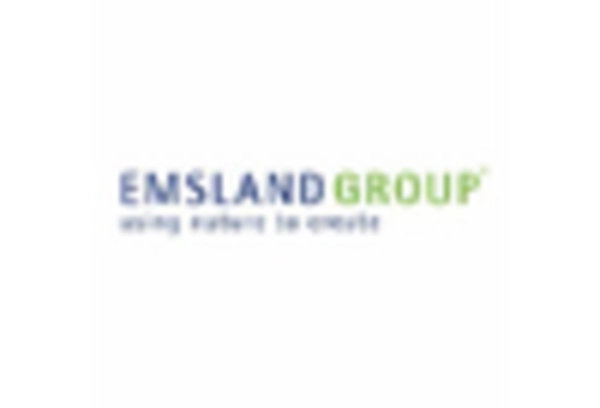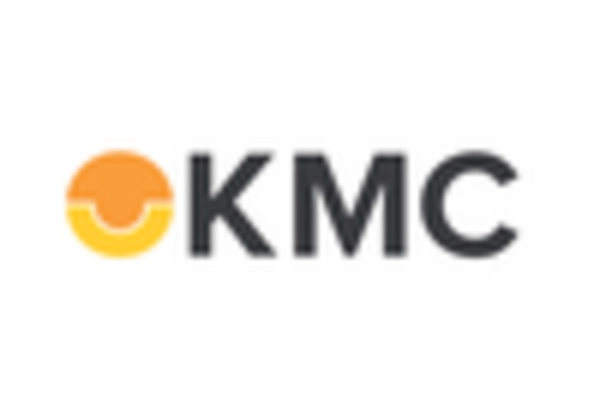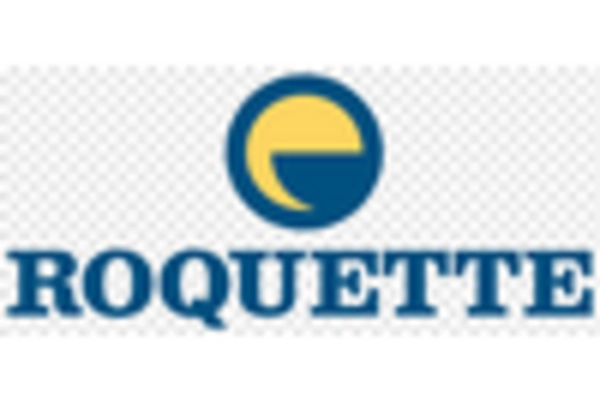Health Consciousness Among Consumers
The increasing awareness of health and nutrition among consumers appears to be a pivotal driver for the potato protein market. As individuals seek healthier dietary options, the demand for plant-based proteins has surged. Potato protein, being rich in essential amino acids and low in allergens, aligns well with the preferences of health-conscious consumers. Recent data indicates that the plant-based protein segment is projected to grow at a CAGR of approximately 8% through 2027. This trend suggests that the potato protein market could experience substantial growth as more consumers opt for protein sources that support their health goals. The potato protein market is likely to benefit from this shift, as manufacturers adapt their offerings to meet the evolving demands of a more health-oriented consumer base.
Growth in the Food and Beverage Sector
The food and beverage sector's expansion is significantly influencing the potato protein market. With the rise of innovative food products, manufacturers are increasingly incorporating potato protein into various applications, including snacks, beverages, and meat alternatives. The market for plant-based food products is expected to reach $74 billion by 2027, indicating a robust opportunity for potato protein. This growth is driven by consumer preferences for healthier, protein-rich options. The potato protein market stands to gain as food manufacturers seek to enhance the nutritional profile of their products. Additionally, the versatility of potato protein allows it to be utilized in diverse formulations, further solidifying its position in the expanding food and beverage landscape.
Increased Focus on Sustainable Sourcing
The emphasis on sustainable sourcing practices is becoming increasingly relevant in the potato protein market. Consumers are more inclined to support brands that prioritize environmentally friendly practices, including sustainable agriculture and responsible sourcing of raw materials. Potato protein, derived from a crop that requires relatively low water and land resources, aligns well with these sustainability goals. The potato protein market is likely to see growth as companies adopt sustainable practices in their supply chains. This focus on sustainability not only appeals to environmentally conscious consumers but also positions potato protein as a viable alternative to more resource-intensive protein sources. As sustainability continues to gain traction, the potato protein market may experience enhanced demand driven by consumer preferences for eco-friendly products.
Rising Popularity of Vegan and Vegetarian Diets
The growing trend towards vegan and vegetarian diets is a notable driver for the potato protein market. As more individuals adopt these lifestyles, the demand for alternative protein sources has intensified. Potato protein, being plant-based and highly digestible, is well-positioned to cater to this demographic. Recent surveys indicate that approximately 6% of the US population identifies as vegan, with an additional 3% as vegetarian. This shift in dietary preferences suggests a potential increase in the consumption of potato protein products. The potato protein market is likely to capitalize on this trend by offering a range of products that appeal to consumers seeking plant-based protein options. As the market evolves, the introduction of innovative potato protein formulations could further enhance its appeal among health-conscious consumers.
Technological Advancements in Protein Extraction
Technological advancements in protein extraction methods are playing a crucial role in shaping the potato protein market. Innovations in processing techniques, such as membrane filtration and enzymatic hydrolysis, have improved the efficiency and yield of potato protein extraction. These advancements not only enhance the quality of the protein but also reduce production costs, making potato protein more accessible to manufacturers. The potato protein market is likely to benefit from these developments, as they enable the production of high-quality protein that meets the growing demand for plant-based ingredients. Furthermore, as technology continues to evolve, the potential for new applications and formulations of potato protein may emerge, further driving market growth.


